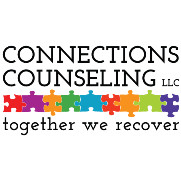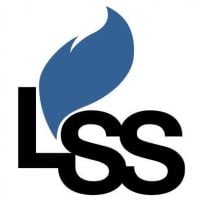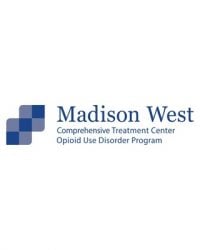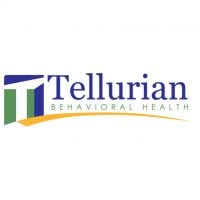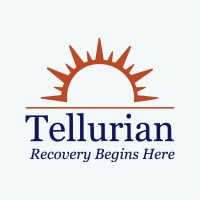Connections Counseling
Drug Rehab Center in Madison, Wisconsin
Connections Counseling is a JCAHO, SAMHSA, and State Licensed accredited facility that provides an extensive array of addiction treatment services for those struggling with alcohol, opioid, substance abuse, and dual diagnosis issues; these include detoxification, drug rehabilitation, dual-diagnosis programs, intensive outpatient/partial hospitalization care plans with supportive aftercare resources to promote long-term sobriety.
About This Madison, WI Facility
Connections Counseling is a unique strength-based clinic in Madison, Wisconsin focused on creating a supportive recovery environment. Its foundation mentors clients to give back, fostering a sense of community conducive to hope and healing.
- Provides a safe, accepting atmosphere for young people, families, and adults
- Utilizes a model of mentorship and service to others in the recovery process
- Helps clients find their passions and begin trusting again
- Certified outpatient drug/alcohol and mental health clinic
Founded in 2002 by Shelly Dutch, the clinic guides clients to move forward by addressing personal struggles. Participants realize they are not alone in their journey.
Accredited by JCAHO, SAMHSA, and holding a state license, Connections Counseling offers comprehensive addiction treatment. Services utilize evidence-based therapies like cognitive-behavioral, interpersonal, and dialectical behavior therapy. Levels of care include detox, residential, partial hospitalization, intensive outpatient, and aftercare support.
Genders
Ages
Modality
Additional
Accreditations
State License
SAMHSA

JCAHO
Conditions and Issues Treated
Rehab centers exist in Madison, WI to help individuals bounce back from substance abuse, which is an umbrella term for drug and alcohol addiction. Drug addiction refers to the use of illegal drugs and improper use of prescription drugs. Centers like Connections Counseling provide individuals a chance to access individual and group therapy that can be monumental for recovery.
Substance abuse includes all problems that stem out from using various psychoactive substances. It is also a diagnostic term used by Diagnostic and Statistical Manual of Mental Disorders (DSM-IV) to define the mental and physical impairment or distress caused by misuse and overuse of certain substances in a period of 12 months.
Opioid addiction involves addiction to legal or illegal opioids. It may happen very quickly with any opioid use. Sometimes within a matter of days. Opioid addiction is a known as a high-risk factor for future heroin addiction.
Opioid withdrawal can be extremely uncomfortable and lead the user to continue to use even if they want to quit. Stopping using an opioid requires careful medical observation. Sometimes the withdrawal can persist for many weeks, which can put the user at a high risk for relapse.
It is recommended to receive inpatient treatment and a medically supervised detox like those offered at Connections Counseling in Madison, WI, WI, to manage the withdrawal process while learning lasting tools to maintain recovery. In some circumstances medications can be used to manage opioid addiction.
Substance use disorder falls under two categories: Alcohol or Drug Abuse and Drug Dependence. An individual suffering from a substance use disorder and mental health disorders is said to have a co-occurring disorder or a dual disorder. Individuals in Madison, WI with substance use disorders and mental health problems are said to suffer from a ‘dual diagnosis’.
The most frequently identified mental health issues found in individuals with substance use disorders include anxiety, depression, schizophrenia, and schizoaffective disorder.
Levels of Care Offered
This center offers a variety of custom treatment tailored to individual recovery. Currently available are Aftercare Support, Detox, Drug Rehab, Dual-Diagnosis, Intensive Outpatient, Intervention, Outpatient, Partial-Hospitalization, with additional therapies available as listed below.
Detox is the first step of rehab. It involves giving a person time to get the toxins out of their body. During detox, the patient gets ill, and they will often start using again to get rid of these unpleasant feelings. That’s why it’s important to have a medical professional at Connections Counseling present. A medical professional will make sure patients don’t start using during detox. They will also likely provide medication to ease their symptoms and coach them through on a mental level.
Intensive outpatient programs are an integral part of the continuum of care for people addicted to drugs and alcohol. Most intensive outpatient programs in Madison, WI comprise a 3-hour session three times a week. Usually, the intensity of these programs diminishes over time. These programs offer a range of services, including counselling, medical treatment, and monitoring alcohol and drug use. The programs are ideal for people who do not need treatment at an inpatient or residential facility and continue to need extended care and support.
Outpatient treatment is treatment that occurs when a patient is not checked into a rehab facility. The patient may show up for therapy sessions, go through detox and engage in other therapies to help them recover. However, they will do so while they live at home in Wisconsin.
Outpatient therapy provided by Connections Counseling is usually recommended as a follow up to inpatient therapy. It helps patients adapt to their normal lives after treatment. In some cases, it can also be an alternative to inpatient treatment. People may choose this route if they are unable to leave their jobs, children or if they don’t have the money for inpatient treatment. However, inpatient treatment is the best way to recover from addiction.
Connections Counseling‘s Partial Hospitalization Program is a midway point between inpatient and outpatient treatment. It is for people who are still struggling with addiction but don’t need round the clock care in Madison. Patients may spend anywhere from 18 to 30 hours a week in a treatment program, but they will sleep at home. The duration of the program can be anywhere from one to six months.
An intervention is a meeting held by families and friends of the addicted party, managed by Connections Counseling. It lets the person know that their loved ones are concerned about them. It is intended to make the addicted party agree to get help.
Interventions are often hosted by a mental health professional in Wisconsin who knows how to communicate with people dealing with addiction. These intervention services can make all the difference when it comes to getting loved ones to agree to treatment.
Aftercare support involves the support given to a Madison, Wisconsin patient after they complete treatment. It helps them adjust to normal life. It may include setting them up in a halfway house and enrolling them in programs like Narcotics Anonymous (NA) and Alcoholics Anonymous (AA). Connections Counseling‘s patients may also be provided with career training to help them get back into the job force.
Connections Counseling‘s Therapies & Programs
Individual therapy aims to identify the core issues that would have led the patient to substance abuse and address the root cause effectively. Patients find the therapist as a person who they can trust. It helps them to open up and discuss personal and sensitive issues, which they may not be comfortable discussing in a group.
Couples therapy is an approach wherein the patients and their partners are engaged together as a part of the treatment process. When a person becomes a victim of substance abuse, it affects the patient and the people around him, particularly his partner. Their relationship can become strained due to lack of communication, financial issues, loss of trust, lack of intimacy, and physical abuse in more severe cases.
Couples therapy addresses these issues and tries to rebuild the trust between the partners. The partner’s involvement in the process will result in greater chances of treatment success and sustained recovery.
Family therapy is a set of therapeutic approaches that assumes that the entire family is a system. It utilizes the strengths and resources of the family to help the patient refrain from resorting to substance abuse. It helps to repair relationships and improve communication between family members.
Group therapy happens at Connections Counseling in a controlled group environment, as opposed to a one-on-one setting. It supports Madison, WI patients’ recovery by offering a sense of comfort and letting them know that they are not alone. Through shared conversations, patients also learn to develop faith and understanding and gain insight on their addictions.
Unresolved trauma is often a key reason why many patients resorted to substance abuse. Trauma therapy refers to treatment wherein specialist therapists help the patients to resolve the trauma that led the patients to substance abuse. The trauma could be physical abuse, sexual abuse, war, natural disasters, divorce, accident, loss of a loved one, etc. Thinking of these traumatic events causes emotional disturbances like anxiety, depression and results in addiction. If trauma is the primary cause of substance abuse, then both issues must be addressed. Otherwise, there is a risk of relapse. Trauma therapy also improves the cognitive functions and provides long term benefits.
Dialectical Behavior Therapy (DBT) is an improved version of Cognitive Behavioral Therapy (CBT). DBT is a treatment of choice for people suffering from self-harming behaviors characterized by cutting and suicidal thoughts or inclinations.
This treatment is developed to help individuals recognize their thought patterns, behaviors, and feelings. It has demonstrated its effectiveness for people that are finding it difficult to control their emotions and urges. Conditions such as obsessive-compulsive disorder and borderline personality disorder also benefit from DBT as it imparts individuals stress-management techniques and enhanced self-esteem so they can sustain their sobriety by reducing the impact of triggers and out-of-control emotions.
Cognitive behavioral therapy (CBT) is a way of addressing concerns through talking. It can be used in individual counseling sessions. Talking through issues with professionals at Connections Counseling can identify sources of discomfort or unhealthy thoughts. It is a way of learning about yourself and your individual perceptions. CBT is a healthy way of addressing some behaviors which may be bringing unintended consequences in your life.
Eye Movement Desensitization and Reprocessing (EMDR) is designed to support patients in treating trauma. Patients follow a bar of light throughout the session or watch their therapist’s finger travel back and forth. All this imitates the eye movements of REM sleep. These are the same movements that enable memories to be reprocessed by the brain. This reduces the impact and reprocesses traumatic memories have individuals, reducing the desire to shelter or escape by abusing substances.
Contingency management is a way to help motivate someone to remain substance free. It is a process of rewarding positive choices and good outcomes. As humans we are wired to recreate experiences that lead to positive feelings. Through this method incentives are used for completing positive steps towards a sober life. This may be a reward for attending meetings, remaining sober or for employment goals.
Patient Experience
Creative Arts
The process of creating art can be a healing form of self-expression. Creative arts therapy uses painting, music, poetry and other methods of individual creation to release negative feelings. It is also an effective method of dealing with anxiety and accessing emotions which may appear too difficult to deal with in other ways. Integrating feelings and thoughts together is the goal for a more balanced approach to life in Madison, WI.
Experiential Therapy at Connections Counseling
Experiential therapy works on the principle that the perception of individuals determines their behavior. It is different from medication and talk therapy and suits those who have difficulty in expressing themselves and interact. Experiential therapy works by using tools and activities to recreate past experiences and encourages the release of suppressed thoughts that were responsible for the negative feelings and drug addiction.
Role-playing, arts and crafts, music, animal care, rock climbing, etc. are some of the activities used in this therapy. Gradually the individual will experience calmness and love and change their perception positively. Other than drug addiction, Experiential therapy is useful in various behavioral and eating disorders.
Payment Options Accepted
For specific insurance or payment methods please contact us.
Is your insurance accepted?
Ask an expert, call (888) 674-0062
Additional Details
Specifics, location, and helpful extra information.
Madison, Wisconsin 53705 Phone Number(608) 233-2100 Meta DetailsUpdated April 15, 2024
Staff Verified
Patient Reviews
There are no reviews yet. Be the first one to write one.
Madison, Wisconsin Addiction Information
Wisconsin has some of the highest rates in the United States for both adolescent and adult substance abuse. Since 2009, the state has been experiencing the same escalating rates of drug abuse and addiction as the rest of the country. The major concerns are the misuse of prescription painkillers and the escalating number of deaths due to alcohol-related liver disease.
Madison, Wisconsin is struggling with an opioid crisis. In 2017, there were 234 drug overdoses in Madison. 1 in 5 residents knows someone who has died from a drug overdose. 8.3% of Madison residents report heavy drinking. This area ranks 4th among Wisconsin cities for drug use disorders. The centers in Madison offer a variety of services, including individual and group counseling, medication-assisted treatment, and detoxification.
Treatment in Nearby Cities
- Brookfield, WI (68.7 mi.)
- Lancaster, WI (64.9 mi.)
- Kewaunee, WI (137.0 mi.)
- Osceola, WI (223.4 mi.)
- Stevens Point, WI (100.3 mi.)
Centers near Connections Counseling
The facility name, logo and brand are the property and registered trademarks of Connections Counseling, and are being used for identification and informational purposes only. Use of these names, logos and brands shall not imply endorsement. RehabNow.org is not affiliated with or sponsored by Connections Counseling.
